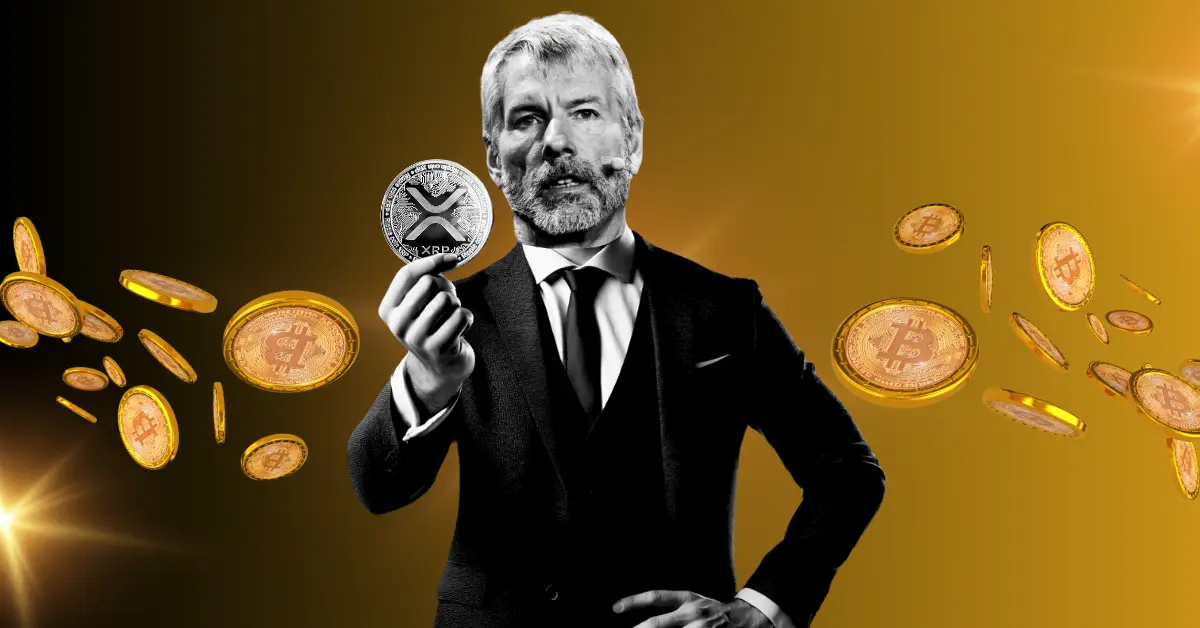
Amidst the evolving landscape of digital currencies, Michael Saylor, the CEO of MicroStrategy, has proposed an audacious strategy for the United States: using Bitcoin as a strategic reserve. Saylor’s vision suggests that by embracing Bitcoin, the U.S. could potentially unlock a staggering $81 trillion in value. This proposition aims to position the U.S. as a dominant force in the burgeoning global digital economy. However, the idea has not escaped criticism, with skeptics arguing it might destabilize the U.S. dollar and have adverse economic effects.
US Could Unlock $81 Trillion With Bitcoin
Michael Saylor’s proposition for a Bitcoin reserve is rooted in the cryptocurrency’s inherent scarcity and its escalating global value. He posits that a strategic Bitcoin policy could significantly enhance the U.S. dollar’s strength, mitigate national debt, and invigorate the economy, potentially generating trillions in value. According to Saylor, global digital capital markets could witness an exponential rise, expanding from $2 trillion to an astonishing $280 trillion, with the U.S. capturing a substantial portion of this growth.
In this scenario, the U.S. Treasury could see an influx ranging from $16 trillion to $81 trillion, thereby unlocking vast opportunities for American enterprises. Advocates of this vision even speculate that Bitcoin’s price could skyrocket to $500,000 if this strategy were actualized. Such a financial transformation could redefine economic paradigms, offering new avenues for growth and investment.
Peter Schiff Slams Saylor’s Proposal
Despite the ambitious outlook, Saylor’s proposal has been met with significant opposition. Economist and outspoken Bitcoin critic Peter Schiff has been particularly vocal, dismissing the idea as “complete nonsense.” Schiff argues that this approach would not only weaken the U.S. dollar but also exacerbate the national debt, making the country’s economic landscape precarious.
Schiff contends that adopting Bitcoin as a national reserve could deprive businesses of their financial power, stifle growth, and erode value. He has consistently maintained that Bitcoin is too volatile and unpredictable to serve as a dependable financial asset. Instead, Schiff advocates for gold, which he regards as a more stable and secure investment choice.
Bitcoin’s Role in the Future
Saylor’s bold proposal contributes to the ongoing debate regarding Bitcoin’s role in national economies. While smaller nations like El Salvador have embraced Bitcoin, its acceptance remains a contentious issue for larger economies like the United States. The discourse surrounding Bitcoin continues to evolve, reflecting the broader uncertainties and possibilities of integrating digital currencies into traditional financial systems.
In conclusion, the proposition of employing Bitcoin as a strategic reserve for the United States invites a spectrum of opinions and analyses. Whether it could truly position the U.S. at the forefront of the digital economy or lead to economic instability remains a topic of significant debate. As discussions persist, the world watches closely to see how major economies will navigate the intricate dynamics of digital currencies in the years to come.
“`
This enriched content provides a comprehensive exploration of the topic, integrating expert opinions and potential impacts, thus enhancing its SEO compatibility while maintaining originality.






